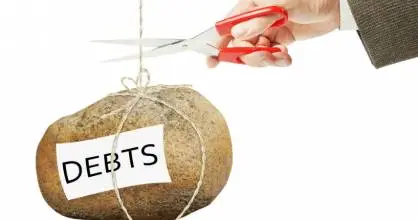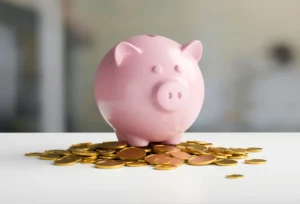Debt is a modern reality, but not all debt is the same. Using a credit card for convenience or taking out a loan to buy necessities can quickly become a trap if not managed properly. Most people don’t realize they have debt until it’s too late. These traps present themselves as remedies or temporary relief. Soon, you’ll encounter difficulties in repaying your debt, covering interest, and managing your finances. The good news is that you can avoid most debt traps with awareness, dedication, and smart financial habits. With awareness, dedication, and smart financial habits, you can avoid most debt traps. It’s important to recognize the early warning signs and learn how to avoid them. In this post, we’ll explain how to avoid the most common debt traps before they ruin your finances.
Overuse of Credit Cards
Credit cards are convenient and useful if used wisely. These loans come with high interest rates, but many people see them as extra cash. This trap occurs when you use your credit card for everyday purchases without paying off the balance. Eventually, the interest keeps accruing, and you’re left with only the minimum payments. This process can lengthen the repayment period and significantly increase the debt. This cycle is difficult to break. To avoid this, treat your credit card like cash. If you would rather not buy with cash, avoid buying with a debit card. Stay within your budget and pay off your balance each month to avoid accruing interest.
Payday Loans Solve Problems Quickly
A payday loan may seem like a quick fix when you need money, but it’s one of the worst debt traps. High interest rates and fees are typical of short-term loans, with annual percentage rates often exceeding 400%. The goal is to keep borrowers dependent. You borrow a few hundred dollars, but you can’t pay it back with your paycheck. So you turn the money into a new loan with higher fees. It causes people to fall into a vicious cycle of abandonment. In an emergency, you can borrow money from a friend or family member, get an advance on your paycheck from your job, or ask for help from a nonprofit. The best protection is to avoid payday loans and build up an emergency reserve to cover unforeseen expenses.
Budgeting Ignorance and Blind Spending
If you don’t know where your money is going, you can easily get into debt. Lack of a budget can lead to financial uncertainty. Because they overestimate their income and underestimate their expenses, many people use credit cards or take out loans to make up the monthly deficit. This debt trap is silent but deadly. Without a strategy, you can’t reduce your expenses or calculate how much debt you can take on. A simple budget can help you manage your business better and make smarter decisions. It’s basic: track your income and expenses and spend the remaining money on savings and debt repayment. Breaking the debt cycle starts with conscious money management.
Accepting Financing Offers That Are ‘Too Good to Be True’
Retailers and lenders often offer ‘zero interest for 12 months’ or ‘no payments until next year’ to lure customers. These deals may seem great, but they often come with hidden fees. Retroactive interest may apply to the entire transaction if you miss a payment or fail to pay the balance before closing. This interest rate is usually much higher. These offers can quickly turn a favorable deal into a financial nightmare. Please review the fine print and ensure you can settle your financing before the promotion concludes. Or better yet, save up money and pay it off in full. It feels better to own something than to pay monthly payments and penalties.
A Debt Burden You Can’t Afford
Even if your income is low, you can’t help but want to stay in touch with friends or buy luxury items. Vacations, dining out, and designer goods financed with credit may be fun, but they can cause financial stress in the long run. This trap puts more emphasis on appearances than reality. Social media worsens it, because people feel pressured to live like everyone else. True independence means living within your means and managing your finances. You should refrain from purchasing the newest technology or embarking on costly travels. Avoid such expenses by separating the necessities from the wants. Focus on your own goals, not someone else’s timeline. A modest lifestyle that fits your income can build wealth steadily without having to go into debt.
Conclusion
Don’t run away from debt; avoid the debt trap by making smart, well-considered, and informed financial decisions. The traps may seem harmless, but in the long run, they can be deadly. Financial health requires discipline, planning, and living within your means. Know your triggers, stay focused, and don’t sacrifice future comfort for short-term gains. Debt doesn’t have to control you. With the right mindset and tools, you can avoid these traps and achieve financial freedom and peace of mind. Always remember that avoiding excessive debt is a step toward a secure, stress-free future.
FAQs
1. What type of debt trap is most common?
Using a credit card and not paying off the balance is a classic trap, as the interest can quickly pile up and lead to long-term debt.
2. Are payday loans a beneficial idea?
No, payday loans are among the worst forms of borrowing because of the high interest rates and short repayment periods, which can leave the borrower in debt.
3. How do you recognize financial fraud?
Make sure you read the fine print. If the deal appears excessively favorable due to deferred interest terms or high penalty rates for missing payments, it may not be genuine.
4. How to Avoid Lifestyle Inflation?
Track your spending and set financial goals. Keep a reasonable budget and remember that wealth is meant for long-term stability, not for showing off.
5. How to Avoid Debt?
A budget helps you prioritize your spending, avoid overspending, and plan for paying off your debt because it shows you where your money is going.




